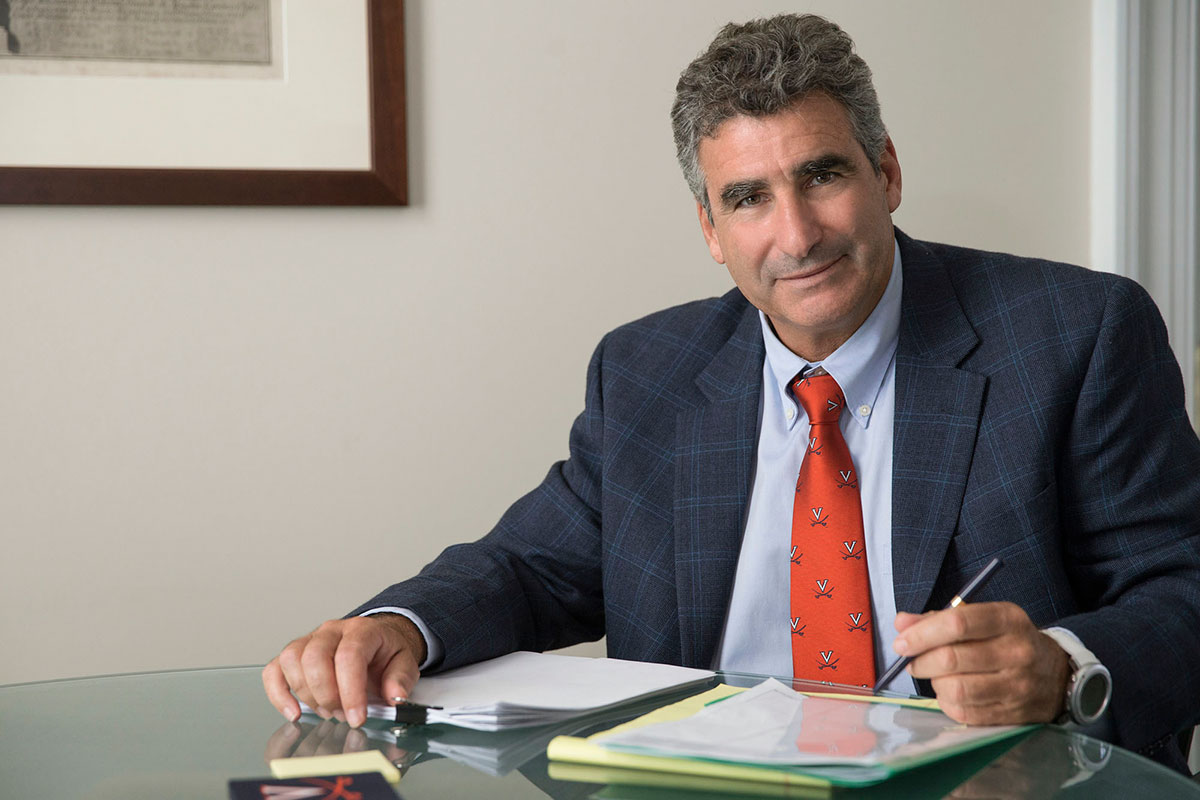The search is on for a new chief research officer at the University of Virginia. The position, previously known as the vice president for research, has been redefined as the vice provost for research and will report to Executive Vice President and Provost Thomas C. Katsouleas.
“The change in title sends a signal that the position and candidate we are looking for is less an administrator than a senior faculty member and thought leader who will be fully integrated with academics, working closely with our deans and associate deans for research, the staff of the provost’s office and with the president and other key administrators, to provide vision and direction as we build and focus the University’s collaborative research and scholarship enterprise,” Katsouleas said.
In recent weeks UVA’s Executive Search Group has met several times and is developing a list of possible candidates from around the country and from within the University. In the coming months, the group will interview candidates and, by summer, make a final selection. The new VPR will come on board by the beginning of the fall semester.
“The process is designed to provide a level playing field for all candidates, internal and external,” Katsouleas said.

Executive Vice President and Provost Thomas C. Katsouleas said the University is seeking “a proven leader, a highly successful visionary researcher who will focus resources on helping others become highly successful.” (Photo by Dan Addison)
“This position calls for leadership at the highest level; it is a challenge and an opportunity for the VPR to work closely with faculty and administrative leaders to identify the right portfolio mix to optimize our investment in research and scholarship,” Katsouleas said. “We are looking for a proven leader, a highly successful visionary researcher who will focus resources on helping others become highly successful.”
Roughly half of the University’s $200 million outlay, Katsouleas said, will go toward recruitment of top-tier faculty, and the other half will support the productivity of faculty already here. “Similarly, half of the research portfolio is in medicine and half in the rest of Grounds,” he said. “Accordingly, this search committee was charged jointly by the provost and the executive vice president for health affairs.”
The new VPR will work with faculty and administrators to improve laboratory infrastructure across the University, enhance staff support for grant writing, support Ph.D. fellowships and help researchers and schools become more productive. The VPR’s goal will be to work with each school to determine where the best investment opportunities lie and leverage the strength of the full University.
“Our $200 million investment will grow our research enterprise and associated scholarship across the many disciplines that make up its strength, including fields for which grant funding is not traditionally a primary metric in scholarly productivity,” Katsouleas said. “But in all fields we will be looking for signs of thought leadership.”
The VPR also will play a leadership role in developing and establishing several pan-University research institutes, designed to tackle pressing societal challenges and questions by bringing to bear the diversity of expertise and perspectives from across Grounds that such challenges require.
The University’s first such institute, the Data Science Institute, was established in 2014. Katsouleas is now leading an effort to establish the next institute, to be selected in May from six finalist proposals. The University will establish several more institutes over the next three or four years, with leadership from the provost, the new VPR, deans and faculty.
Media Contact
Article Information
February 3, 2016
/content/uva-seeks-vice-provost-research-lead-enterprise-fall-semester

